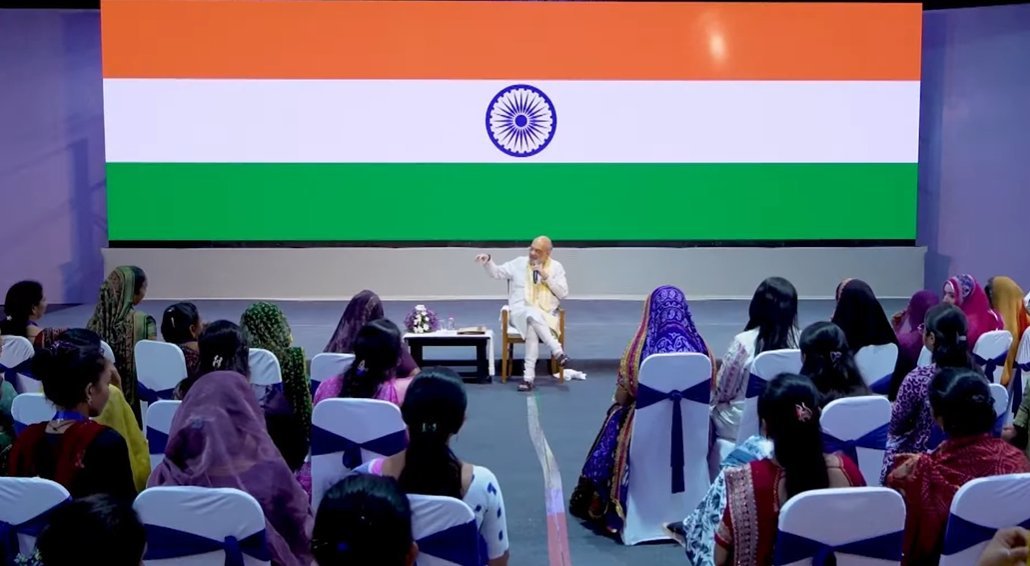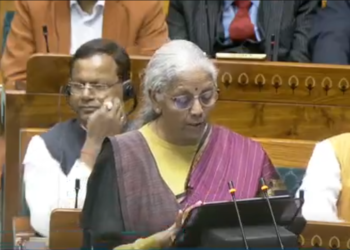Known for his political acumen and administrative rigor, Amit Shah now says his life after public office will focus on spiritual learning and promoting organic agriculture.
BY PC Bureau
New Delhi
July 9, 2025: Union Home Minister Amit Shah, one of the most powerful figures in Indian politics, has revealed that his post-retirement life will be far removed from the corridors of power. Instead, he plans to devote his time to studying the Vedas and Upanishads, and to natural farming, a cause he has increasingly championed in recent years.
The 60-year-old BJP stalwart, known for his tireless political work ethic, shared this personal vision while interacting with women farmers and activists from Rajasthan, Gujarat, and Madhya Pradesh during the Sahkar Samvaad event in Ahmedabad on Wednesday.
“I have decided that after retirement, I will dedicate the rest of my life to the Vedas, Upanishads, and natural farming,” Shah said.
While he did not elaborate on how he plans to immerse himself in Hindu spiritual texts, Shah spoke at length about the importance of natural farming, linking it to both personal health and environmental sustainability.
He warned of the health hazards posed by chemically-grown crops, asserting that such food contributes to ailments like cancer, diabetes, high blood pressure, and thyroid disorders.
“Wheat grown with chemical fertilisers often leads to cancer and other serious illnesses. We didn’t know this earlier. Eating food grown without chemicals can eliminate the need for medicines,” he said.
Shah also shared his own experience with organic farming, noting that his personal farm has shown significantly better yields under natural practices.
After I retire, I will dedicate the rest of my life to the Vedas, Upanishads, and natural farming.
Wheat grown with chemical fertilisers often leads to various health issues.
Natural farming not only helps in making the body disease-free but also enhances agricultural… pic.twitter.com/U9pUY1WAYj
— BJP (@BJP4India) July 9, 2025
“I’ve been practising natural farming on my own land. The productivity is nearly 1.5 times higher,” he claimed.
Beyond health and yield, Shah highlighted the ecological benefits of organic farming. He explained how natural methods restore the soil’s ability to absorb rainwater, reducing runoff and improving groundwater levels.
“When it rains heavily, chemically treated farms see water flowing out. But with organic methods, water seeps into the soil thanks to the reformation of natural catchways,” he said.
READ: Harvard vs Trump: Subpoenas, Lawsuits, and Frozen Grants
He lamented the widespread use of synthetic fertilisers, which he said has led to the disappearance of earthworms—nature’s own fertiliser producers.
“Earthworms act as factories of urea, DAP, and MPK. But chemical fertilisers have killed them. We’ve destroyed what nature gave us,” he added.
Shah, who also heads the Ministry of Cooperation, reflected on the personal significance of that role, saying it holds a deeper value for him than even his appointment as Home Minister.
READ: In Brotherhood, Mizoram Opens Heart and Borders to Myanmar Refugees
“When I became Home Minister, people told me I’d got a big portfolio. But when I was given the Ministry of Cooperation, I felt I was handed a responsibility that directly serves the poor, farmers, villages, and livestock of the country,” he said.
As the country heads toward a new election season, Shah’s remarks offer a rare glimpse into the personal philosophy of one of India’s most influential political leaders—one who is already thinking about life after politics, grounded in spirituality, sustainability, and service.













